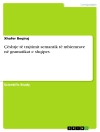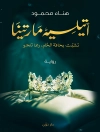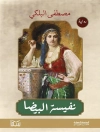The extent to which contemporary rhetorics of nation and kingship reflected the realities of social, economic and cultural life in Habsburg Spain.
Early modern Spain’s insistent rhetorics of nation and kingship, of a monolithic body of shared values and beliefs, especially in respect of racial and gender stereotypes, and of a centralized and ostensibly absolutist legislativeapparatus did not map unproblematically onto the complex topography of everyday life. This volume explores the extent to which these rhetorics and the ideology they helped to construct or underpin reflected or failed to reflect the realities of social, economic, and cultural life. It sets against their typically exorbitant claims the lived, messy, and sometimes contradictory experience of Spaniards across a broad social spectrum, both at the centre and atthe margins, not just of peninsular society, but of the Hispanic world overseas. Confronting ideology were questions of economic pragmatism, executive feasibility, jurisdictional competence, and, above all, the social and political complexity of the Spain of the period.
RICHARD J. PYM is Senior Lecturer in Hispanic Studies at Royal Holloway, University of London.
Contributors: TREVOR J. DADSON, MARGARET RICH GREER, BARRY IFE, ALISTAIR MALCOLM, MELVEENA MCKENDRICK, RICHARD J. PYM, HELEN RAWLINGS, ALEXANDER SAMSON, JULES WHICKER
Table des matières
Preface – Richard J. Pym
Official rhetoric versus local reality: propaganda and the expulsion of the
moriscos – Trevor J. Dadson
Arbitrismo and the early seventeenth-century Spanish Church: the theory and practice of anti-clericalist philosophy – Helen Rawlings
Law and disorder: anti-gypsy legislation and its failures in seventeenth-century Spain – Richard J. Pym
Diego Hurtado de Mendoza and the Jewess of Venice: tolerance, interfaith sexuality and
converso culture –
Representing their sex: actresses in seventeenth-century Spain – Melveena Mc Kendrick
Public morality and the closure of the theatres in the mid-seventeenth century: Philip IV, the Council of Castile and the arrival of Mariana of Austria – Alistair Malcolm
The politics of memory in
El tuzaní de la Alpujarra – Margaret R Greer
‘Seguid la guerra y renovad los daños.’: implicit pacifism in Cervantes’s
La Numancia – Jules Whicker
Here and there,
acá and
allá: the origins of authority in Oviedo’s
Historia natural y general de las Indias – B. W. Ife
A propos de l’auteur
MARGARET R. GREER is Emeritus Professor of Romance Studies at Duke University.












